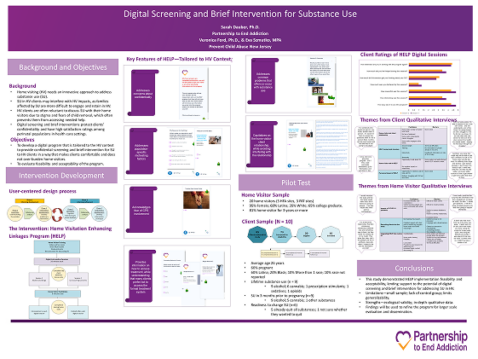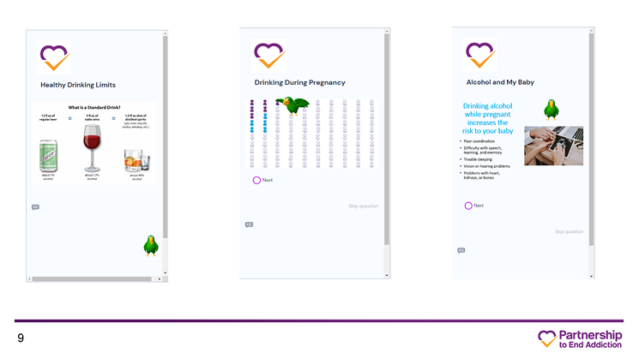Home Visitation Enhancing Linkages Project (HELP)
Challenge
Home visiting is a voluntary supportive intervention that serves more than 250,000 of the nation’s highest risk families during pregnancy and postpartum annually. Most widely used home visiting models do not have standardized protocols for addressing maternal substance use beyond making referrals, leaving many pregnant and postpartum people with unmet substance use needs.
What we did
We partnered with the New Jersey home visiting system, Prevent Child Abuse New Jersey, and colleagues at Michigan State University to adapt an existing digital screening and brief intervention for perinatal substance use to be used in the home visiting context. The “HELP Program” includes two digital intervention sessions for home visiting clients to complete confidentially on their own computer or smartphone in between home visits. We also developed scripts for the home visitor to use to integrate the digital intervention into routine home visiting services. We worked closely with home visitors and clients to tailor the program to the home visiting context. The HELP Program provides home visiting clients with a brief motivational interviewing intervention for substance use that is tailored to their stage of pregnancy/postpartum, their substance of concern, and their level of readiness for change. Clients receive information, support, and access to local resources confidentially through the program, without forcing them to disclose their substance use to their home visitor if they are not ready to do so.
Outcome
This is an ongoing project – our progress to date: we conducted a small feasibility test of the HELP Program in home visiting programs in New Jersey. Initial feasibility and acceptability of the HELP Program was supported. Qualitative interviews with participating home visitors and clients revealed specific facilitators and barriers to implementation. With new funding from NIDA, we are beginning a new partnership with Healthy Families America programs in Kansas to refine the HELP Program and conduct a randomized trial to test its impact. We will also develop specific implementation strategies to support integration of the HELP Program into routine home visiting.

